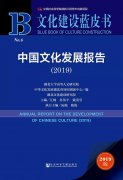

语言是社会的一面镜子。
1975年著名社会语言学家Robin Lakoff引入了 “women’s register” (女性语域)这个概念,她观察到,美国女性为了缓和谈话或者为了减弱表达观点时的侵略性,会出现以下这些特征:
❶Tag questions
使用很多反义疑问句
“This election mess is terrible, isn’t it?”
“这届选举乱套了,是吧?”
❷ Rising intonation on declaratives
陈述句也用升调结尾
A: “When will dinner be ready?”
“晚饭什么时候好啊?”
B:“Six o’clock.”↑
“六点。”↑
❸ The use of various kinds of hedges.
用插入成分避免过分直接的表达
“That’s kinda sad.” Vs. “That’s sad.”
“是有点可怜”Vs.“可怜”
“It’s probably dinner time.” Vs. “It’s dinner time.”
“或许该吃饭了吧”Vs.“该吃饭了”
“I don’t really want it.” Vs. “I don’t want it.”
“我不太想这么做”Vs.“我不想这么做”
“I wondered if I could have a word with you.” Vs. “Can I have a word with you?”
“我在想是否可以借一步说话”Vs.“我能跟你聊聊吗”
“The answer could be that the trees have some sort of disease.” Vs. “The answer is that...”
“答案可能是这些树得了某种病”Vs.“答案是……”
❹ Boosters or amplifiers.
加重语气,放大情感
“I am so glad you are here.”
“你在这儿,我太高兴了。”
❺ Indirection.
迂回表述
Saying “Well, I’ve got a dentist appointment then” in order to convey a reluctance to meet at some proposed time and perhaps to request that the other person propose an alternative time.
比如,为了表达不情愿与某人在约定时间见面,或者希望对方另找一个时间,会说 “呃……那个点我约了去见牙医。”
❻Diminutives
使用小词或小词缀
A diminutive form of a word implies that something is small, cute, loved, or special. E.g. panties, piglet, kitchenette, etc.
人们使用小词或小词缀来表示该事物体积很小、很可爱,或者很特别。例如panties(女士短衬裤)、piglet(小猪猪、猪崽儿)、kitchenette(小厨房)等。
❼ Euphemism
使用委婉语
Avoiding profanities by using expressions like piffle, or heck; using circumlocutions like go to the bathroom to avoid “vulgar” or tabooed expressions such as pee or piss.
为避免脏话,会说piffle(废话、蠢话) 或者heck(见鬼)。为了避免“粗俗”或者忌讳的表达,如pee(撒尿) 或者piss(尿尿),会用委婉的表达,如“去卫生间”。
不过,许多跟进研究发现,改变说话方式——说话时去掉上面这些展示迂回和礼貌的语言特征并不会帮助到女性争取到assertiveness(说话自信)和the sense of power(权力感)。
上世纪60到80年代,拉博夫等人也对这个领域进行了研究,他们发现:
In Western, industrial societies, women tend to produce speech closer to the standard in pronunciation than that of men. For instance, women produce more ‘ing’ in words like ‘running’, but men produce more ‘in’, resulting in ‘runnin’.
在西方工业社会,女性的发音会比男性更靠近社会标准语的要求。比方说,像是“running”这样的词,女性多以‘ing’来结尾(running),而很多男性会发成“in” (runnin)。
当然,这些研究最长距今已经过去了50多年,今时今日的状况与当年的研究结果或许已经出现了很大的出入。
男性语言的特征
视线转过来,男性的语言有什么显著特征呢?
英国社会语言学家Jennifer Coates在她的专著Men Talk–Stories in the Making of Masculinities中谈到了自己对男性使用语言表达情感情绪的观察。
The absence of talk about feelings is perhaps the most notable consequence of “the constraining hand of hegemonic masculinity” in the conversations I’ve collected. The imperative to avoid vulnerability means that men have to put a lot of effort into keeping up a front (or wearing a mask).
在我收集的对话中,不谈论情感或情绪或许是“霸权男性气概掣肘”最显著的后果。必须隐藏脆弱意味着男人们需要花很多精力树立一个门面形象(或者说戴上一个面具)。
看到这儿,脑海里应该很容易浮现出不善言谈的直男老爸形象。
Men avoid the emotional when they talk with each other. In groups of more than two speakers, men are anxious not to be seen to be displaying characteristics which could be labeled “feminine” and therefore “gay”’.
男人与男人聊天时,通常会避免谈及情绪。在谈话者超过两人的群组中,男性特别在乎不要被人看到自己展示出可能会被打上“女性化”标签,进而被人觉得“像同性恋”的特质。
The significance of talk involving just two speakers is confirmed by a contemporary survey of boys in London schools. Boys are willing to open up to a sympathetic male interviewer.
最近一项针对伦敦校园男生的调查显示,仅包括两个谈话者的对话十分重要。男孩们很愿意对友好的男性访谈者袒露心扉。
如何采集网页数据女性发音普遍比男性标准?男女生的语言习惯还有这么多差别……
文章转载链接:http://zmt.designcto.com/waimei/94904.html
想了解更多资讯欢迎进入自媒体联盟官方媒体,自媒体联盟涵盖网络自媒体,网络新媒体,自媒体网站,新媒体网站,媒体发布,媒体投放,媒体平台!

战略军师孙斌:不做大佬只做大佬背后的军师 娱乐圈每

活到老学到老,知识就是力量!这是亘古不变的定律。

战略军师孙斌:窃格瓦拉年薪1500万约等于叶茂中一次策

小心: 这条新闻可能改变你的一生!!! 毫不不夸大宣

2019年9月6日,湖北大学高等人文研究院、中华文化发展

随着实体和网络的全面融合,单纯的实体店的优势已经不